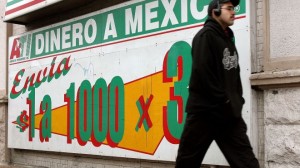50% of U.S. Latinos Need to Have Banking Relationships: Opportunity Speaks
June 26, 2012 Credit unions and other financial institutions would gain new members and customers if they adapted to the needs of the growing Hispanic market, the group “least served” by the financial sector, an expert in the subject said.
Credit unions and other financial institutions would gain new members and customers if they adapted to the needs of the growing Hispanic market, the group “least served” by the financial sector, an expert in the subject said.
“The credit unions must understand that the face of the U.S. consumer is changing and that for there to be growth, (they) must adapt to new consumers, instead of forcing those consumers to adapt to (them),” Miriam De Dios, vice president of Coopera Consulting, in Des Moines, Iowa, told Efe.
De Dios emphasized that, according to reports, 50 percent of U.S. Hispanics do not have a traditional relationship with financial institutions, such as banks and credit unions, but rather use alternative financial services, generally at higher cost.
“Because of that, there’s a great opportunity,” she said.
The Mexican-born De Dios grew up in the United States, where she saw her parents “suffer due to many things, including not knowing the U.S. financial system.”
That personal experience led her to become interested in financial matters and five years ago she joined Coopera, attracted by the vision of founder Warren Morrow.
 Morrow was born in Mexico to a Mexican mother and an American father and spent part of his childhood there before moving to Tucson, Arizona. Later, he studied biology at Iowa’s Grinnell College, where, in 1999, he founded the non-profit Latino Leadership Project that, after several transformations, became Coopera Consulting.
Morrow was born in Mexico to a Mexican mother and an American father and spent part of his childhood there before moving to Tucson, Arizona. Later, he studied biology at Iowa’s Grinnell College, where, in 1999, he founded the non-profit Latino Leadership Project that, after several transformations, became Coopera Consulting.
Coopera is now the property of the Iowa Credit Union League.
Morrow died unexpectedly in February at age 34. “It was something unexpected and impacted us deeply. Warren was a very passionate person and believed in the idea of bringing dignified financial services to the Hispanic community through the … credit unions,” De Dios said.
She feels that she and her colleagues should continue with Morrow’s mission to “help the community to get ahead.”
One of the ways to do that, she said, is to educate Hispanics about traditional financial services.
 But the other option is to educate the credit unions about the need to implement a systematic process to serve the Hispanic market.
But the other option is to educate the credit unions about the need to implement a systematic process to serve the Hispanic market.
“Having a strategy to better serve the Hispanic community is a need nowadays for the savings institutions and credit unions. It’s something good they should do and also it’s an investment in their future,” De Dios said.
By attracting new Hispanic members, credit unions can reduce the average age of their members, thus creating a “sustainable future.”
“Hispanics are a solution to the challenges of the financial institutions, since they represent a young and new market with a growing buying power and an appetite for a variety of financial services. The credit unions need the Hispanics, and the Hispanics (need) those credit unions,” she concluded.
Source hispanicallyspeakingnews.com
The Mexican Consulate in Los Angeles plans to educate Latinos about opening bank accounts
By Aaron Schrank
Later this year, the consulate will work with Clearpoint Credit Counseling Solutions, a non-profit organization with four offices in Los Angeles.
Latinos are one of the groups least likely to invest in a bank account. A 2009 Federal Deposit Insurance Corporation (FDIC) survey found that 43 percent of Latinos are “unbanked” or “underbanked.”
Underbanked households are those that have a checking or savings account but rely on financial serces like payday loans, check cashing services, rent-to-own agreements and pawn shops
Clearpoint president Martha Lucey says these services can be costly.
“I think that there can be a distrust of financial institutions that may be culturally based and, depending on people’s country of origin, they may not have had a banking system that has the type of protection we have in the United States with the FDIC,” Lucey said. “The combination of factors makes it less likely for Hispanic households to be banked, and that’s an opportunity for us to talk about the benefits of getting into a formal banking relationship, and how it can actually save a family money over using cash.”
A Pew Hispanic Center report found that many Latino immigrant remittance senders (those who regularly sent money to Latin America) held skeptical views of banks.
Lucey echoed the Center’s findings, identifying mistrust as one of many factors why many Latinos don’t deposit their money in banks.
“Having to pay to cash your check takes money out of your pocket,” Lucey said. “Having to pay to purchase money orders to pay your utilities or rent or mortgage costs the family money as well. If folks can get a low-cost checking account, to be able to write checks or do electronic transfers for those services, families are going to be able to keep more money in their pockets.”
